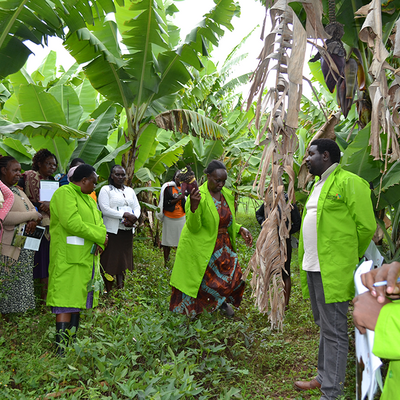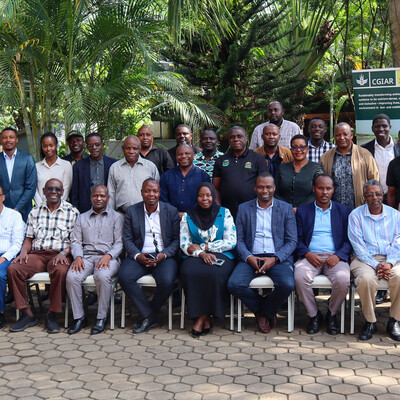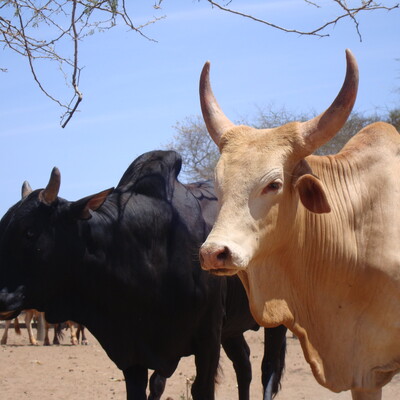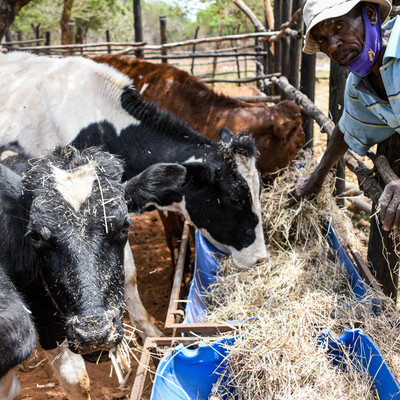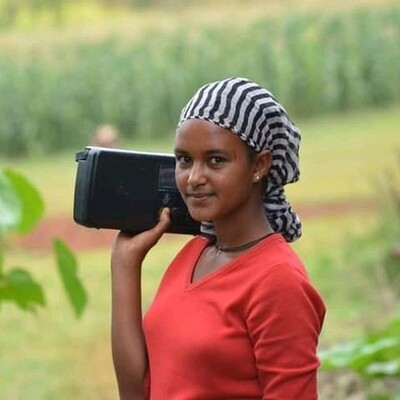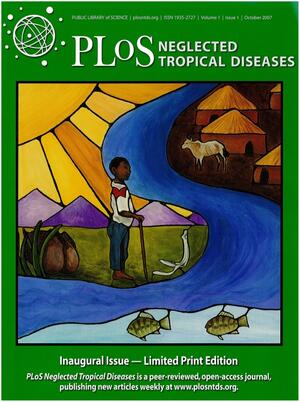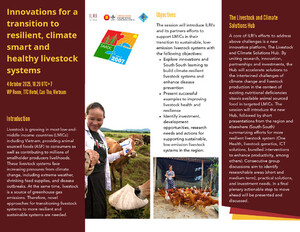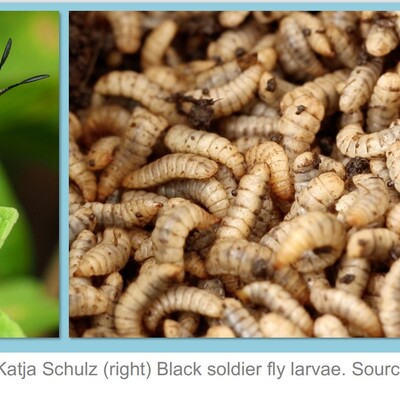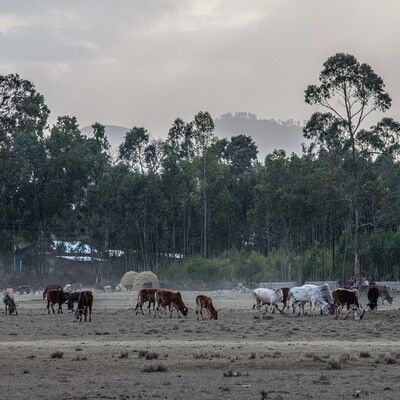

SAPLING Initiatives Pause and Reflect moment for the year 2024
In February 2024, the Sustainable Animal Productivity for Livelihoods, Nutrition, and Gender Inclusion (SAPLING) Initiative team held its “pause and reflect” session virtually, connecting the different country hubs over three weeks. All staff members involved in the SAPLING Initiative were invited to the meetings, and an average of forty participants were recorded for each session. During the first two weeks, the team met for a couple of hours to share science insights and country experiences on co-creation with partners. Work packages and countries teams also met separately to review their activities, including progress on their theory of change. In the third week, the entire SAPLING team met daily to share progress, discuss the 2024 plan, and develop ideas for integrating SAPLING work into the future CGIAR Mega Programs.
In her opening remarks during the first session, Siboniso Moyo, ILRI’s deputy director general for research and development–Biosciences, underscored the value of reviewing the research work right from discovery to delivery of results for a greater impact. The first phase of the Initiative is expected to end this year, and she observed that the lessons learnt would invaluably inform us on areas that can be carried forward, and improved on, as well as new ones for inclusion in the next phase.
Isabelle Baltenweck and Mourad Rekik, SAPLING lead and co-lead, also hailed the team for every effort and commitment to continuously deliver on the Initiative plans, despite the hurdles experienced. In 2023, the Initiative progressed significantly, achieving 24 outcomes compared to 5 in 2022, 201 knowledge products, of which 105 are journal papers, 35 capacity-building initiatives, and 66 innovations. The results were achieved in collaboration with several partners, mainly from national universities, governments, private sector stakeholders, and the National Agricultural Research Systems (NARS). Some of these partners participated in the “pause and reflect” meetings to help give perspective to the successes and hitches experienced.
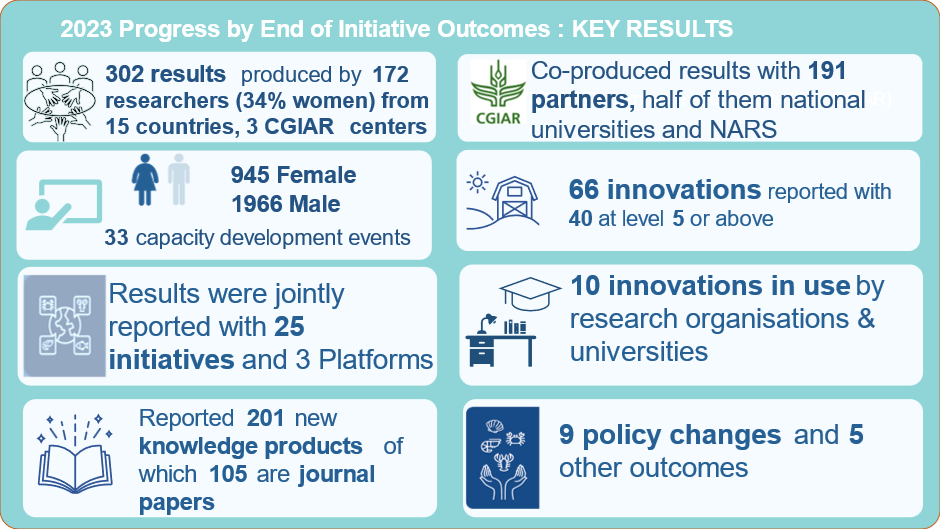
Work Packages and country value chains progress review
The SAPLING Initiative focuses on the cattle, chickens, small ruminants, buffalo, and pigs value chains in Ethiopia, Kenya, Mali, Nepal, Tanzania, Uganda, and Vietnam. Research is carried out in five work packages, namely Technologies and Practices for Sustainable Productivity (Work Package 1) Livestock derived foods as part of diverse diets (Work Package 2), Gender Equity and Social Inclusion (Work Package 3), Competitive and Inclusive Livestock Value Chains (Work Package 4) and Evidence, Decisions and Scaling (Work Package 5).
Week three of the pause and reflect meeting was dedicated to the work packages, country value chains, and the Initiative's overall progress review. The Monitoring and Evaluation team also took the participants through a review of the overall results recorded in terms of knowledge products, innovations, outcomes, and capacity building, among others.
Young scientists' research collaboration
To address some research concepts, the Initiative teams are collaborating with several universities, such as the University of Alicante (Spain), on an impact assessment study of a Social Behaviour Communication Change (SBCC) intervention. This intervention, which focuses on improving nutrition outcomes for young children and women of reproductive age, and behaviour change in men in Uganda as part of WP2, is vital to our community engagement strategy. The PhD student, Hardi Ahmed, participates in the SBCC intervention to deliver knowledge to men and women on household, maternal, and child nutrition, including consumption of livestock-derived foods and food safety practices, while also addressing societal norms to demystify the consumption of animal-source foods, particularly for women and young children.
In Mali, the SAPLING team has also engaged a Postdoctoral Fellow, Olivier Zannou, who completed his studies at the University of Liege in Belgium, in developing and evaluating an integrated herd health package of interventions. The package includes a new thermotolerant vaccine against Peste des Petits Ruminant (PPR) to help alleviate the PPR disease burden.
SAPLING sessions with partners
The SAPLING research involved a lot of collaboration with partners from its inception to implementation, and some of them were also involved in the annual meeting to share their experiences and for the SAPLING team to learn from each other.
The Kenya SAPLING team led by ILRI’s James Rao brought on board Silas Maosa, a partner from Perfometer to examine the emerging successes achieved through the dairy farmers' assistant (DFA) approach. The DFA approach is an extension services innovation involving private extension personnel. The DFAs are deployed to provide dedicated and targeted advisory services to assist farmers in managing their farm enterprises. Rao observed that the approach had progressed well but expressed the desire to have farmers go beyond productivity and focus on profitability. Silas Maosa, the commercial project manager at Perfometer said that that through DFAs, they are supporting smallholder farmers to make decisions to address challenges such as low productivity per cow and inappropriate mix of feed options. To achieve this, DFAs are equipped with several decision support tools, such as the dairy profitability app, thus enabling them to offer quality advisory and decision-making support to farmers. The DFA innovation is being tested across selected farms in collaboration with dairy cooperatives and county governments in Kenya.
In Ethiopia, ICARDA’s Haile Aynalem, who leads the SAPLING team, introduced the ongoing integrated small ruminant value chain transformation program that addresses animal genetics, health, feeds, and marketing challenges, among other aspects. As part of the scaling of proven innovation packages, the Washera and Wollo (WaWo) sheep scaling initiative is being implemented in the Amhara region of Ethiopia, using a community-based breeding program (CBBP) as an entry point. The Amhara Regional Agricultural Research Institute (ARARI) was picked to spearhead the implementation work. Likawent Yeheyis, the institute’s deputy director general, joined the online meeting and pointed out that the WAWO scaling initiative has been successful, benefiting over 5,000 farm households with an accrued number of over 50,000 breeding stock. In addition, support and capacity building in reproductive biotechnology, genetic improvement, health intervention, feeding, and market linkage have been part of the program that contributed to the transformation of the value chain.
In Uganda, SAPLING activities focus on pig, beef, and dairy value chains. ILRI’s Emily Ouma, the lead scientist, noted that through the Initiative, a network has been created bringing together pig agripreneurs comprising traders, farmers, animal health, and artificial insemination professionals through a business accelerator program to enhance business capacities and a platform that strengthens agripreneur networks. To actualize this, the team has been partnering with E4Impact FoundationE4Impact Foundation, a social change organization supporting the start-up and growth of new businesses in Africa. Loise Kamau, the E4Impact country manager, noted that the collaboration has facilitated the development of pig agripreneurs' skills by training them on core business models such as marketing and financial modeling. In addition, a linkage with financial institutions is offered, allowing agripreneurs and farmers to opt to open bank accounts, eventually giving them a chance to get loans from financial institutions under favourable terms. Grace Tusiime, also from the E4Impact foundation, further noted that there is a focus on helping the agripreneurs to run their businesses more profitably, adding that the linkage to financial institutions is providing an easier way to lobby for funding, and this is helping pig farmers to appreciate the need to form groups and start cooperatives to ease up the process.
In Tanzania, ILRI’s Amos Omore, the SAPLING country lead scientist, said the team is collaborating with Kuza Biashara. This organization transforms rural agri-businesses through youth capacity building on entrepreneurship and digitized learning content. The digital platform enables the youth to grow market linkages that deliver bundled inputs and services to smallholder farmers. Creating linkages involving young agri-entrepreneurs linked to smallholder farmers and other service providers is emerging as a promising entry point for promoting technology uptake and productivity. The platform helps young agri-entrepreneurs aggregate demand and smallholder farmers access inputs and services to boost productivity, increase income, and generate helpful employment opportunities along the value chain. Engaging youth in the digital platform is expected to continue beyond the initiative. Omore notes that this approach addresses the major challenge in Tanzania, which is a weak private sector that makes sustainable delivery of agricultural inputs and services difficult. Sriram Bharatam, the founder of the Kuza Biashara, reaffirmed his organization's engagement in supporting start-ups and established agri-businesses entrepreneurs in the region by providing a digital platform for enhancing market linkages and access to inputs and extension services. The approach is to mentor and support the growth of the selected service providers by helping them understand both business and technical components critical to their success.
In Mali, Michel Dione, who leads the country's SAPLING research work, discussed the small ruminant value chain with Abdoulaye Bamba, Chairperson of the Mali Association of Veterinarians who holds the Sanitary Mandate (Collectif des Vétérinaires Mandataires). They discussed the small ruminant vaccination strategy implemented by SAPLING, which uses an integrated approach through an Innovation Platform. Bamba said that the vaccination strategy is much needed to improve vaccination coverage in the country. In addition, he believes that the peste des petits ruminants (PPR) thermotolerant vaccine, an innovation of SAPLING, is very much needed and expected to improve the health of small ruminants, given the high burden of PPR, which he estimated to cause about 70-80% mortality in small ruminants. He added that connection to the SAPLING team has greatly helped farmers since they not only access the interventions offered but they also receive farmer education. In addition, the team has provided linkages between the government and other stakeholders involved in delivering the PPR vaccines, even to farmers in remote areas who would have otherwise not been reached. Dione added that besides this, the SAPLING and Innovations scaling teams are working to link the supply of the vaccine to other countries in the region through a regional body like ECOWAS. In the meantime, the African Development Bank (AfDB) funded a scaling project to reach 35000 households with 1 million doses in Mali.
In Nepal, the SAPLING work focuses on improving the buffalo dairy value chain through a joint intervention with the local municipalities and dairy cooperatives in selected areas. Padmakumar Varijakshapanicker is ILRI’s representative to Nepal and the country's SAPLING work leader. He was Joined by Moushumi Shrestha, the director of Shreenagar, an agribusiness company, and Ujjwal Adhikari, Manager of Maharanijhoda Small Farmer Agricultural Cooperative in Nepal, that has commercialized the production of processed enriched rice straw (PES), an innovation that was developed by the ILRI team working in the SAPLING Initiative, to help farmers improve the productivity of their dairy animals in the country.
The innovation is part of the outcomes of the SAPLING initiative on an integrated nutrition package, holistic fertility management, and genetic improvement in dairy buffalo in Nepal. Shrestha said the innovation had added value to her business because PES is cheaper than other processed feeds, and she can now reach farmers through the cooperatives strategy availed under SAPLING. Shivahari Ghimire, the research partner from the Nepal Agricultural Research Council (NARC), discussed the progress of the work, saying that NARC has benefitted by having ILRI as a technical partner, given its livestock expertise. The research project focuses on finding climate-smart solutions and accruing other benefits to the livestock stakeholders. Ghimire noted that ILRI's extensive knowledge of climate-smart agriculture and ways to measure and reduce methane gas emissions in Nepal’s dairy buffalos is vital. The processed rice straw produced following the SAPLING intervention is expected to have reduced methane gas production.
In Vietnam, SAPLING's work focuses on the pig and beef value chains in the northwest highlands. ILRI’s Karen Marshall, who is part of the research team, held a panel discussion with Le Thi Huyen from the National Institute of Animal Sciences, focusing on the artificial insemination intervention for beef cattle and pigs. This is one of multiple interventions implemented to improve livestock productivity and marketing through engagement with farmer groups, input service providers, and market actors. Animal health-care workers were trained in cattle and pig artificial insemination and business skills and organized into a cooperative for joint sharing of liquid nitrogen facilities (required for semen storage). Farmers are being exposed to artificial insemination through training and demonstration farm visits. Further, some farmers keeping the local Ban breed of pigs, culturally important to those of H’mong ethnicity, were trained in semen production and processing such that semen from this local breed was available. The work has so far seen over 300 smallholder livestock-keeping households in the Mai Son district of Son La province adopt either the cattle or pig AI from the initiative-supported AI service providers. SAPLING is also engaging with the provincial-level government to scale the approach to other districts in Son La.
The SAPLING Initiative continues to record significant progress since its inception. Its contribution to the initiative's end outcomes remains remarkable, as the results show that over 250,000 people have been reached. An increase in investments by both public and private sector actors to the tune of over 430,000 USD has also been recorded, in addition to informing policies for more inclusive and sustainable livestock systems.
This success has been achieved through the collaboration of research teams from several CGIAR centers and the public and private sectors. The annual pause and reflect meeting allowed all these teams time to look back, look ahead, and plan.
See the Mali research outcome brief here …
See the Nepal research outcome brief here …
See the Uganda research outcome brief here …
See the Ethiopia research outcome brief here …
You may also like
Related Publications

Classification of donkey systems in Ethiopia
- Asteraye, Girma B.
- Jobling, R.
- Jemberu, Wudu T.
- Pinchbeck, G.
- Knight-Jones, Theodore J.D.
- Critchlow, R.
- Rushton, Jonathan
- Chaters, G.L.

Index-based Livestock insurance to support pastoralists against droughts
- Jensen, Nathaniel D.
- Barrett, Christopher B.
- Mude, Andrew G.
- Banerjee, Rupsha R.
- Noritomo, Yuma
- Shikuku, Kelvin Mashisia
- Takahashi, Kazushi
- Teufel, Nils

Sustainable Intensification in Crop-Livestock Systems: ILRI’s Approach and Experience
- Mekonnen, Kindu

Anthelmintic resistance in livestock in Africa: review of the current status
- Gatitu, Lucy
- Kasudi, Mitchelle R.
- Githigia, S.
- Moodley, Arshnee
- Muloi, Dishon M.





